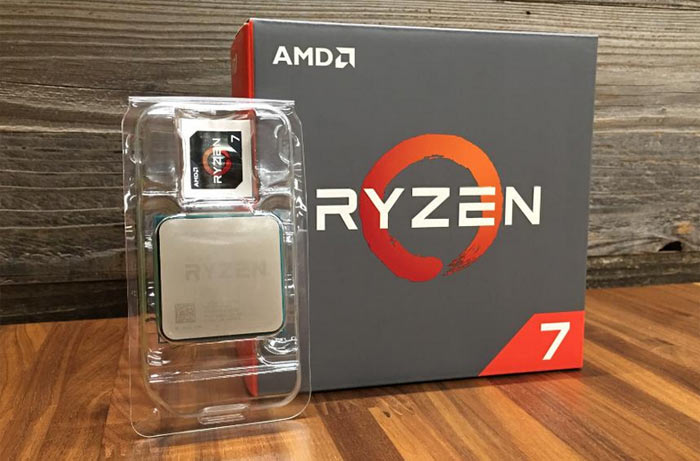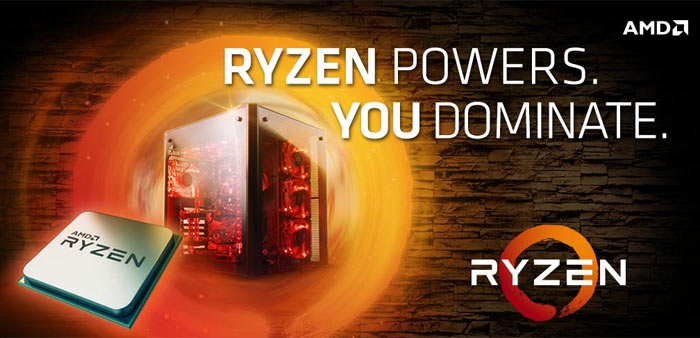Yesterday we saw the launch of the AMD Ryzen 7 range of CPUs. I'm sure that has not escaped many HEXUS reader information radars. Overall we concluded that the new high-end AMD processors offered "massive multi-core performance, [and] aggressive pricing," but single thread performance trailed Intel by a smidgeon, and probably most controversially there were gaming optimisations needed going forward.

SMT seems to be a problem for AMD right now with the disabling of this feature was actually seen to result in better performance in games. Here at HEXUS we tested Total War: Warhammer at Ultra settings QHD, and disabling SMT increased the average frame rate from 79fps to 85.8fps. With Hitman (again Ultra settings at QHD) a similar uplift was observed, with frame rates improved from 91.4fps to 95.6fps.
Other reviewers did quite a few FHD 1080p gaming tests and this again showed AMD performance anomalies. As PC Perspective reports gaming at 1080p on Ryzen "shows a deficit in performance compared to Intel Kaby Lake and Broadwell-E processors," in many AAA games.
Now, regarding this issue, PCPer has received an answer of sorts from John Taylor, CVP of Marketing at AMD. In a nutshell he told PCPer that developers simply aren't used to AMD Ryzen yet, and AMD's seeding of a targeted 1000+ developer systems in 2017 will help address the performance anomaly. In contrast, developers are already leveraging optimisations that uniquely apply to the Intel platform.
For reference and clarity, the full statement by AMD's Taylor is directly below:
As we presented at Ryzen Tech Day, we are supporting 300+ developer kits with game development studios to optimize current and future game releases for the all-new Ryzen CPU. We are on track for 1000+ developer systems in 2017. For example, Bethesda at GDC yesterday announced its strategic relationship with AMD to optimize for Ryzen CPUs, primarily through Vulkan low-level API optimizations, for a new generation of games, DLC and VR experiences.
Oxide Games also provided a public statement today on the significant performance uplift observed when optimizing for the 8-core, 16-thread Ryzen 7 CPU design – optimizations not yet reflected in Ashes of the Singularity benchmarking. Creative Assembly, developers of the Total War series, made a similar statement today related to upcoming Ryzen optimizations.
CPU benchmarking deficits to the competition in certain games at 1080p resolution can be attributed to the development and optimization of the game uniquely to Intel platforms – until now. Even without optimizations in place, Ryzen delivers high, smooth frame rates on all 'CPU-bound' games, as well as overall smooth frame rates and great experiences in GPU-bound gaming and VR. With developers taking advantage of Ryzen architecture and the extra cores and threads, we expect benchmarks to only get better, and enable Ryzen excel at next generation gaming experiences as well.
Game performance will be optimized for Ryzen and continue to improve from at-launch frame rate scores. John Taylor, AMD.
It's hard to know what if any differences might emanate from the dev kit seeding program but the 'years of Intel optimisations' assertion does ring true. Already AMD is confident that two developers are making the right moves to optimise for Ryzen CPUs. Oxide Games and Creative Assembly, developers of Ashes of the Singularity and Total War respectively, are acting to improve threading and performance on Ryzen systems "very soon" says PC Per.

The source article also includes some 'testimonials' from Oxide Games and Creative Assembly about what they are doing to improve Ryzen performance in their games engine / games. Also remember that AMD's new partnership with Bethesda in Vulkan game development will help show AMD CPUs and GPUs in a good light.













